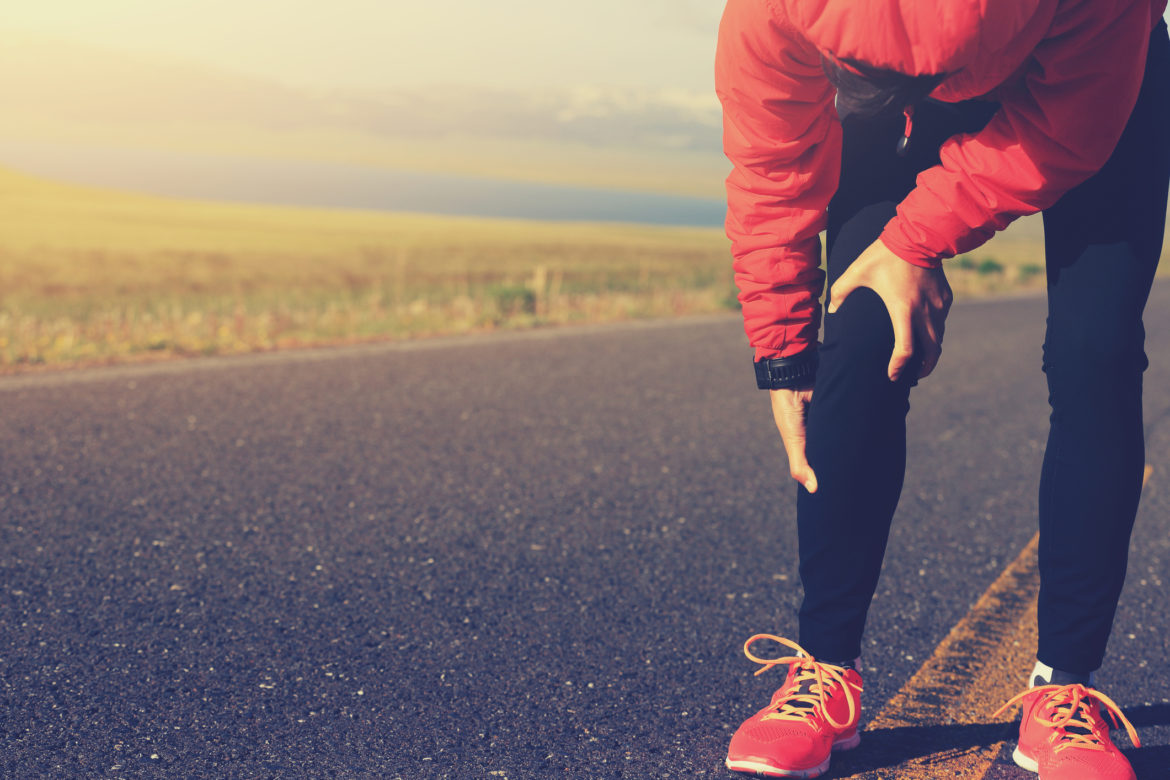
Running: is it bad for your knees?
Running continues to be one of the UK’s most popular sports and for good reason. It’s a simple, accessible and time efficient form of exercise that suits the modern way of life. Part of the appeal is that enthusiasts only need to find the few minutes it takes to lace up and get out, in order to benefit from the fantastic fat-burning, endorphin releasing and posture challenging workout that running offers!
Is running BAD for the knees?
Clients with running related injuries have been flooding in to the clinic since the turn of the year and the majority are complaining of knee pain. Most will present with soreness to the outside of the knee, a Dr. Google self diagnosis of IT-band syndrome and the question ‘is running bad for my knees’?
I’ll cut to the chase and answer the question as I would if a client were to ask me … NO !!
Running is NOT bad for your knees.
That includes on the road, on the trails, on the beach, on the treadmill and anywhere else you feel like challenging your footfall.
If, as a result of running you are experiencing, or have a history of, a mechanical type issue with your knees such as, but not limiting:
- IT-band syndrome (pain on the outside of the knee);
- Patellofemoral dysfunction (knee cap pain);
- Wear and tear (cartilage irritation) / arthritic pain or;
- Patella tendon tendinopathy;
You and your knees are the victim of something else in your body NOT working properly for you. Your knee pain is the result of poor mechanics
How do I prevent knee pain from running?
Now unfortunately, I can’t give you the magic corrective exercise to relieve all your symptoms as every client is different in presentation. However, the method in which I help clients to figure out where their problem area is, the part of your body ‘driving’ your knees to become irritable, that is the same for all.
It starts with detailed questioning. Always reflecting on your past. Any physical trauma that has occurred that you have quite possibly forgotten (as the brain doesn’t really like to recall it!), going back as far as you can. There is a very good chance that after an injury ANYWHERE in the body, your brain has had to create a different movement strategy to allow you to achieve running again and unfortunately it is now not favourable for your knees.
The other most prevalent factor is the tried and tested theory that:
The posture you are in the most will cause most of your problems!
Poor posture = Poor running
This is the real crux of the matter and often the answer to the majority of mechanical problems experienced in the body. For the large majority of you, the posture you are in the most is sitting at a desk for several hours a day and possibly from a very early age. The average for desk based workers is 40 hours a week without considering the commute and sitting habits at home. Consider this common behaviour cycle:
- You wake up and SIT on the edge of your bed;
- You SIT to have your breakfast;
- You SIT to commute to work;
- You SIT at work;
- You SIT to have your lunch;
- You SIT to work some more;
- You SIT to commute home;
- You SIT to have your dinner and then;
- You SIT to relax from all the SITTING you’ve done!
So when you choose to start running again and squeeze it in to a ‘sitting cycle’ as proposed above, you really shouldn’t be surprised to discover that your body reacts badly to it! Your knees are likely to hurt because they weren’t designed to be flexed all day in a sitting posture!
You were designed to move – SIMPLE.
The muscle tissue around the knees, connecting to the rest of your body, needs to be stimulated, stretched and moved. This just doesn’t happen when you sit. And if the knees continue to be uncomfortable when you run or afterwards, you’re either not correcting the right area or you’re not correcting it enough.
Am I just not supposed to run?
Don’t start thinking that you weren’t born to run. That’s absolute rubbish! Just like the world bestselling book ‘Born to Run’ suggests:
‘Running isn’t bad for you, the way that you run is’!
For most of you, the solution to easing your knee pain lies in understanding more about the posture that you are in the most. Figure that out, learn to correct it and ease into a good running posture, and you’ll ease the stress on your knees.
Finally, consider the mechanics associated with the knees. We have been led to believe that the knees are load bearing joints. That the cartilage or menisci in our knees act like shock absorbers and help to cushion the load we put in the knees, especially when we run. This would therefore suggest that we have a finite amount of ‘shock absorbency’ in our knees. Once this has gone, when the cartilage is worn out, then we can no longer put load through knees and should stop running. STOP THE PRESS:
Your KNEES are NOT shock absorbers.
They are NOT load bearing joints.
They are NOT designed to absorb force.
Your knees ARE load ‘transferring’ joints.
The knees are designed to TRANSFER any load, created by your feet hitting the floor, from the lower leg to the upper leg using the amazing muscle tissue connections throughout the body. Mechanical problems like those suggested above occur in the knees when they are expected to absorb excessive force.
Consider your entire body and fix your pain!
So to self- manage your running knee pain you will need to look past the immediate acute pain in your knees. Look into your past medical history. Look at your most common posture. Where is your body failing that leads to your running posture being poor? Figure that out and you will experience much longer lasting pain relief than you get from treating the symptoms.
And remember, as outlined in the last blog;
Everything you do, takes all of you.
You WERE designed to move and Born to Run!
Good luck and please feel free to send in any questions you may have, related to this, or other ailments of the body you would like me to comment on, I always love to hear from you.
Keep the ‘spring’ in your step!
Rob
Contact me here

Leave a Reply
You must be logged in to post a comment.